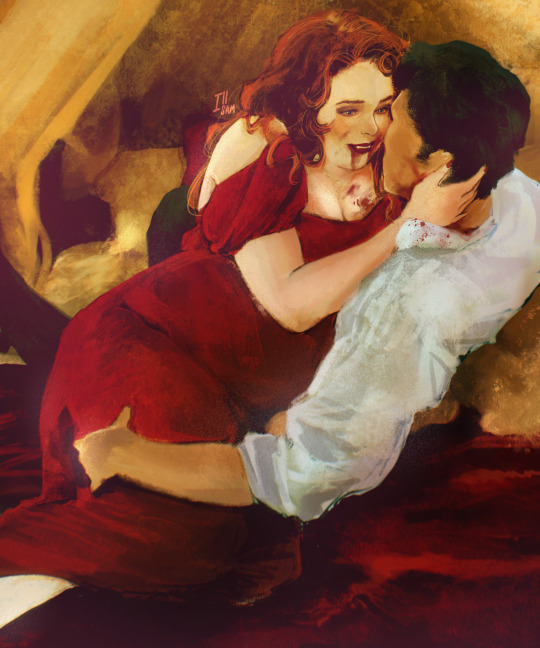these are the ruins, being rebuilt. she/her, 20+ || mass effect/da blog is @ladyhighever, critical role blog is @widobravely
Don't wanna be here? Send us removal request.
Text

51K notes
·
View notes
Text

vamp!pen can absolutely get it 🙈
#medyo nakakahiya yung lumabas sa bibig ko#at yung naramdaman ko#HAHAJASDHLKAJSDF#penelope featherington#polin#colin bridgerton#vampire#god she's so! she's SO!!!!!!!!!
3K notes
·
View notes
Photo

Theme 62: Pollux by ShuDesigns
Static Preview | Download 1 | Download 2
[ FEATURES ]
Fixed navbar
Custom navbar title (default value is blog title)
Custom navbar links (maximum 4, will only appear if links exist)
Automatically highlighting current page
Search bar
Full width banner
Optional, will only appear if banner image is uploaded
Banner blending mode: normal / multiply / overlay / screen
Custom banner image (suggested size: 1920px * 500px)
Custom banner image opacity
Sticky Sidebar
Sidebar position: left / right
Sidebar width: 175px / 200px / 225px / 250px
Custom sidebar image
Custom sidebar links (maximum 4, will only appear if links exist)
Blog posts
Post width: 540px / 500px / 400px
Custom font size
Unnest caption
Styled audio player
Reblog / like buttons
Others
Custom Tumblr controls style (light / dark, custom opacity)
Scroll to top button
Styled tooltip
[ TERMS OF USE ]
Please like or reblog if using.
Do not use as a base.
Do not republish / claim as your own.
DO NOT REMOVE MY CREDIT.
[ IMPORTANT NOTES ]
Optimistic for Google Chrome.
Check the Feather Icons list to change the sidebar icons. (e.g. “facebook”, “twitter”)
Sticky sidebar, unnest caption and some other features may NOT work on the customize page.
If something looks wrong on your customize page, please go to your blog and check if it’s working.
I do not help customizing / personalizing this theme.
You can edit the theme all you want but please DO NOT remove the credit or even republish it.
[ CREDITS ]
style-my-tooltips by malihu
Extended photoset by PixelUnion, modified by bychloethemes
Video width fix by shythemes
[ CHECK ALSO ]
Need help? | Donate | Other themes
If you have any problem please message me.
2K notes
·
View notes
Text
Reblog this to get absolutely hugged. Just completely snuggled. Totally fucking cuddled.
19K notes
·
View notes
Text
everyone on this site is all ‘yearning’ this and ‘pining’ that and ‘dark feral sublime monsterfucker’ yes but as soon as the actual full-fledged jealousy comes out you cowards uwu your ‘top ten reasons x is an abusive no good very bad person’ thinkpieces all over the goddamns tags like a repressed nerd’s premature orgasm and I for one can not abide this hypocrisy
Pray tell, how does one pine and yet skirt the indignant sting of perceived rejection? How can one yearn without feeling the ache of envy for those privileged to bask in their love’s brilliant light? How can one’s love be considered wild or feral or monstrous if it does not light a fire of bitter fury in the cold dark corners of one’s broken heart? And moreover, what better measure of one’s character than for them to smother those flames and swallow the poison fumes so no one else will have to choke? What, pray fuck, is the god damn dramatic point of want if it has no bite?
basically y’all are boring and I’m revoking your yearning rights until you take a long hot sec to ponder why you need to pathologize regular-ass emotions do not pass go do not collect 100k coffee shop au go directly to jail and face the divine terror of your all too human hunger.
#I FOUND IT THANK YOU LORD!!!!!!!!!!!!#SAVE#yearning#unrequited love#all too human hunger#hunger#WHAT TAGS CAN I USE TO FIND THIS AGAIN#pining#divine terror
9K notes
·
View notes
Text
being a woman is like. i want to be monstrous. i want to be desired.
#penelope featherington#lady whistledown#lmaoooo not getting past the polin brain just yet#bridgerton
44K notes
·
View notes
Text
I really like the word “smitten”. because at first glance you just think of sappy lovey-dovey stuff but also you have to remember this is a word that’s born of the word “smite.” a devastating word. a word that, summarized, means stricken. smitten means stricken as well — struck with devastating affection.
101K notes
·
View notes
Text
WHEREEEE is that post about unrequited love and how it like...turns you animal? how it's devastating? i think it had something to do with how some fics water it down and make it palatable like coffee shop au but i'm not sure. i'm sure it had something about...face the consequences of your devastating desire. something to that effect. PLEASE I NEED IT
8 notes
·
View notes
Photo

If you see this on your dashboard, reblog this, NO MATTER WHAT and all your dreams and wishes will come true.
174K notes
·
View notes
Text
A Guide to Historically Accurate Regency-Era Names

I recently received a message from a historical romance writer asking if I knew any good resources for finding historically accurate Regency-era names for their characters.
Not knowing any off the top of my head, I dug around online a bit and found there really isn’t much out there. The vast majority of search results were Buzzfeed-style listicles which range from accurate-adjacent to really, really, really bad.
I did find a few blog posts with fairly decent name lists, but noticed that even these have very little indication as to each name’s relative popularity as those statistical breakdowns really don't exist.
I began writing up a response with this information, but then I (being a research addict who was currently snowed in after a blizzard) thought hey - if there aren’t any good resources out there why not make one myself?
As I lacked any compiled data to work from, I had to do my own data wrangling on this project. Due to this fact, I limited the scope to what I thought would be the most useful for writers who focus on this era, namely - people of a marriageable age living in the wealthiest areas of London.
So with this in mind - I went through period records and compiled the names of 25,000 couples who were married in the City of Westminster (which includes Mayfair, St. James and Hyde Park) between 1804 to 1821.
So let’s see what all that data tells us…
To begin - I think it’s hard for us in the modern world with our wide and varied abundance of first names to conceive of just how POPULAR popular names of the past were.
If you were to take a modern sample of 25-year-old (born in 1998) American women, the most common name would be Emily with 1.35% of the total population. If you were to add the next four most popular names (Hannah, Samantha, Sarah and Ashley) these top five names would bring you to 5.5% of the total population. (source: Social Security Administration)
If you were to do the same survey in Regency London - the most common name would be Mary with 19.2% of the population. Add the next four most popular names (Elizabeth, Ann, Sarah and Jane) and with just 5 names you would have covered 62% of all women.
To hit 62% of the population in the modern survey it would take the top 400 names.
The top five Regency men’s names (John, William, Thomas, James and George) have nearly identical statistics as the women’s names.
I struggled for the better part of a week with how to present my findings, as a big list in alphabetical order really fails to get across the popularity factor and also isn’t the most tumblr-compatible format. And then my YouTube homepage recommended a random video of someone ranking all the books they’d read last year - and so I present…
The Regency Name Popularity Tier List
The Tiers
S+ - 10% of the population or greater. There is no modern equivalent to this level of popularity. 52% of the population had one of these 7 names.
S - 2-10%. There is still no modern equivalent to this level of popularity. Names in this percentage range in the past have included Mary and William in the 1880s and Jennifer in the late 1970s (topped out at 4%).
A - 1-2%. The top five modern names usually fall in this range. Kids with these names would probably include their last initial in class to avoid confusion. (1998 examples: Emily, Sarah, Ashley, Michael, Christopher, Brandon.)
B - .3-1%. Very common names. Would fall in the top 50 modern names. You would most likely know at least 1 person with these names. (1998 examples: Jessica, Megan, Allison, Justin, Ryan, Eric)
C - .17-.3%. Common names. Would fall in the modern top 100. You would probably know someone with these names, or at least know of them. (1998 examples: Chloe, Grace, Vanessa, Sean, Spencer, Seth)
D - .06-.17%. Less common names. In the modern top 250. You may not personally know someone with these names, but you’re aware of them. (1998 examples: Faith, Cassidy, Summer, Griffin, Dustin, Colby)
E - .02-.06%. Uncommon names. You’re aware these are names, but they are not common. Unusual enough they may be remarked upon. (1998 examples: Calista, Skye, Precious, Fabian, Justice, Lorenzo)
F - .01-.02%. Rare names. You may have heard of these names, but you probably don’t know anyone with one. Extremely unusual, and would likely be remarked upon. (1998 examples: Emerald, Lourdes, Serenity, Dario, Tavian, Adonis)
G - Very rare names. There are only a handful of people with these names in the entire country. You’ve never met anyone with this name.
H - Virtually non-existent. Names that theoretically could have existed in the Regency period (their original source pre-dates the early 19th century) but I found fewer than five (and often no) period examples of them being used in Regency England. (Example names taken from romance novels and online Regency name lists.)
Just to once again reinforce how POPULAR popular names were before we get to the tier lists - statistically, in a ballroom of 100 people in Regency London: 80 would have names from tiers S+/S. An additional 15 people would have names from tiers A/B and C. 4 of the remaining 5 would have names from D/E. Only one would have a name from below tier E.
Women's Names
S+ Mary, Elizabeth, Ann, Sarah
S - Jane, Mary Ann+, Hannah, Susannah, Margaret, Catherine, Martha, Charlotte, Maria
A - Frances, Harriet, Sophia, Eleanor, Rebecca
B - Alice, Amelia, Bridget~, Caroline, Eliza, Esther, Isabella, Louisa, Lucy, Lydia, Phoebe, Rachel, Susan
C - Ellen, Fanny*, Grace, Henrietta, Hester, Jemima, Matilda, Priscilla
D - Abigail, Agnes, Amy, Augusta, Barbara, Betsy*, Betty*, Cecilia, Christiana, Clarissa, Deborah, Diana, Dinah, Dorothy, Emily, Emma, Georgiana, Helen, Janet^, Joanna, Johanna, Judith, Julia, Kezia, Kitty*, Letitia, Nancy*, Ruth, Winifred>
E - Arabella, Celia, Charity, Clara, Cordelia, Dorcas, Eve, Georgina, Honor, Honora, Jennet^, Jessie*^, Joan, Joyce, Juliana, Juliet, Lavinia, Leah, Margery, Marian, Marianne, Marie, Mercy, Miriam, Naomi, Patience, Penelope, Philadelphia, Phillis, Prudence, Rhoda, Rosanna, Rose, Rosetta, Rosina, Sabina, Selina, Sylvia, Theodosia, Theresa
F - (selected) Alicia, Bethia, Euphemia, Frederica, Helena, Leonora, Mariana, Millicent, Mirah, Olivia, Philippa, Rosamund, Sybella, Tabitha, Temperance, Theophila, Thomasin, Tryphena, Ursula, Virtue, Wilhelmina
G - (selected) Adelaide, Alethia, Angelina, Cassandra, Cherry, Constance, Delilah, Dorinda, Drusilla, Eva, Happy, Jessica, Josephine, Laura, Minerva, Octavia, Parthenia, Theodora, Violet, Zipporah
H - Alberta, Alexandra, Amber, Ashley, Calliope, Calpurnia, Chloe, Cressida, Cynthia, Daisy, Daphne, Elaine, Eloise, Estella, Lilian, Lilias, Francesca, Gabriella, Genevieve, Gwendoline, Hermione, Hyacinth, Inez, Iris, Kathleen, Madeline, Maude, Melody, Portia, Seabright, Seraphina, Sienna, Verity
Men's Names
S+ John, William, Thomas
S - James, George, Joseph, Richard, Robert, Charles, Henry, Edward, Samuel
A - Benjamin, (Mother’s/Grandmother’s maiden name used as first name)#
B - Alexander^, Andrew, Daniel, David>, Edmund, Francis, Frederick, Isaac, Matthew, Michael, Patrick~, Peter, Philip, Stephen, Timothy
C - Abraham, Anthony, Christopher, Hugh>, Jeremiah, Jonathan, Nathaniel, Walter
D - Adam, Arthur, Bartholomew, Cornelius, Dennis, Evan>, Jacob, Job, Josiah, Joshua, Lawrence, Lewis, Luke, Mark, Martin, Moses, Nicholas, Owen>, Paul, Ralph, Simon
E - Aaron, Alfred, Allen, Ambrose, Amos, Archibald, Augustin, Augustus, Barnard, Barney, Bernard, Bryan, Caleb, Christian, Clement, Colin, Duncan^, Ebenezer, Edwin, Emanuel, Felix, Gabriel, Gerard, Gilbert, Giles, Griffith, Harry*, Herbert, Humphrey, Israel, Jabez, Jesse, Joel, Jonas, Lancelot, Matthias, Maurice, Miles, Oliver, Rees, Reuben, Roger, Rowland, Solomon, Theophilus, Valentine, Zachariah
F - (selected) Abel, Barnabus, Benedict, Connor, Elijah, Ernest, Gideon, Godfrey, Gregory, Hector, Horace, Horatio, Isaiah, Jasper, Levi, Marmaduke, Noah, Percival, Shadrach, Vincent
G - (selected) Albion, Darius, Christmas, Cleophas, Enoch, Ethelbert, Gavin, Griffin, Hercules, Hugo, Innocent, Justin, Maximilian, Methuselah, Peregrine, Phineas, Roland, Sebastian, Sylvester, Theodore, Titus, Zephaniah
H - Albinus, Americus, Cassian, Dominic, Eric, Milo, Rollo, Trevor, Tristan, Waldo, Xavier
# Men were sometimes given a family surname (most often their mother's or grandmother's maiden name) as their first name - the most famous example of this being Fitzwilliam Darcy. If you were to combine all surname-based first names as a single 'name' this is where the practice would rank.
*Rank as a given name, not a nickname
+If you count Mary Ann as a separate name from Mary - Mary would remain in S+ even without the Mary Anns included
~Primarily used by people of Irish descent
^Primarily used by people of Scottish descent
>Primarily used by people of Welsh descent
I was going to continue on and write about why Regency-era first names were so uniform, discuss historically accurate surnames, nicknames, and include a little guide to finding 'unique' names that are still historically accurate - but this post is already very, very long, so that will have to wait for a later date.
If anyone has any questions/comments/clarifications in the meantime feel free to message me.
Methodology notes: All data is from marriage records covering six parishes in the City of Westminster between 1804 and 1821. The total sample size was 50,950 individuals.
I chose marriage records rather than births/baptisms as I wanted to focus on individuals who were adults during the Regency era rather than newborns. I think many people make the mistake when researching historical names by using baby name data for the year their story takes place rather than 20 to 30 years prior, and I wanted to avoid that. If you are writing a story that takes place in 1930 you don’t want to research the top names for 1930, you need to be looking at 1910 or earlier if you are naming adult characters.
I combined (for my own sanity) names that are pronounced identically but have minor spelling differences: i.e. the data for Catherine also includes Catharines and Katherines, Susannah includes Susannas, Phoebe includes Phebes, etc.
The compound 'Mother's/Grandmother's maiden name used as first name' designation is an educated guesstimate based on what I recognized as known surnames, as I do not hate myself enough to go through 25,000+ individuals and confirm their mother's maiden names. So if the tally includes any individuals who just happened to be named Fitzroy/Hastings/Townsend/etc. because their parents liked the sound of it and not due to any familial relations - my bad.
I did a small comparative survey of 5,000 individuals in several rural communities in Rutland and Staffordshire (chosen because they had the cleanest data I could find and I was lazy) to see if there were any significant differences between urban and rural naming practices and found the results to be very similar. The most noticeable difference I observed was that the S+ tier names were even MORE popular in rural areas than in London. In Rutland between 1810 and 1820 Elizabeths comprised 21.4% of all brides vs. 15.3% in the London survey. All other S+ names also saw increases of between 1% and 6%. I also observed that the rural communities I surveyed saw a small, but noticeable and fairly consistent, increase in the use of names with Biblical origins.
Sources of the records I used for my survey:
Ancestry.com. England & Wales Marriages, 1538-1988 [database on-line].
Ancestry.com. Westminster, London, England, Church of England Marriages and Banns, 1754-1935 [database on-line].
12K notes
·
View notes
Text

489 notes
·
View notes
Text
I think one of the things you don’t expect when growing up in the Christian community is that if you become deeply, chronically depressed at a younger age, you start to get a rose-tinted view of death and can develop stronger suicidal idealization. With the preacher always proclaiming popular phrases like: “There is a better life after death!” and “Funerals shouldn’t be miserable and hopeless for a Christian.” and “Suffering in this world only lasts until you die.” It’s very unusual how I’ve never heard from anybody else on how quickly these seemingly hopeful declarations can take a quick turn once they become ingrained in a depressed child’s thought process.
162 notes
·
View notes
Text
basically I think that if your protagonist doesn’t want to fuck someone so bad it makes them look stupid, then there probably isn’t enough energy in your story. “Fuck someone” isn’t literal btw—they can want to uncover the secrets of their parent’s death, they can want to prove their worth, they can want a donut from one particular bakery—it can be anything so long as they want it so bad that they’ll make decisions that make any sane person go “are you a moron??”, with little to no forethought, or even tons of forethought and this is still the option they chose. Because they want to fuck that thing so bad.
25K notes
·
View notes
Text
"It is a wedding breakfasts, the sun is still out 😲" as if he did not fuck her on the middle of the day with the curtains open and nearly fingered her out on the streets the previous night lmao
#polin#bridgerton#listen he cut into pebling's dance#HEIGHT of rudeness#and then as soon as he got her in his arms he was a PERFECT dance partner#the boy is chaotic neutral.
408 notes
·
View notes
Text
not all character interpretations are valid some of you are sexist
40K notes
·
View notes

